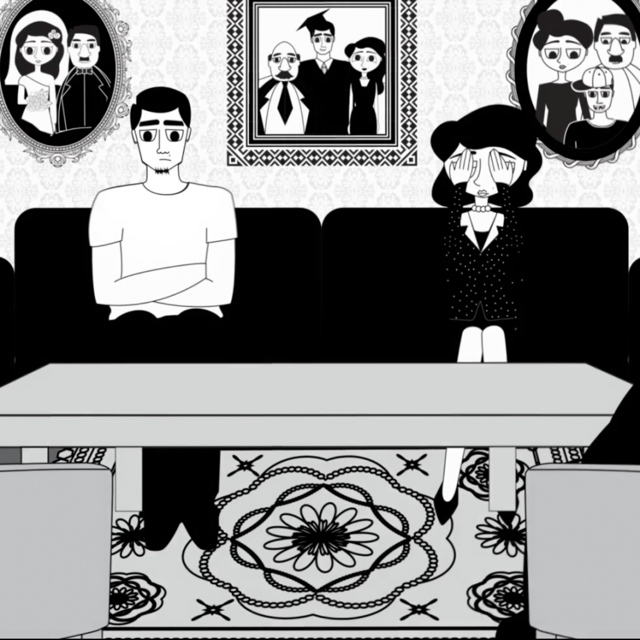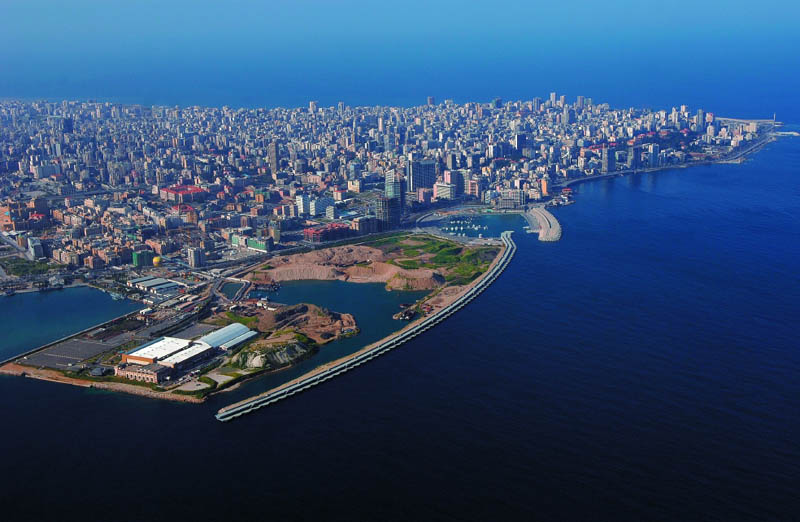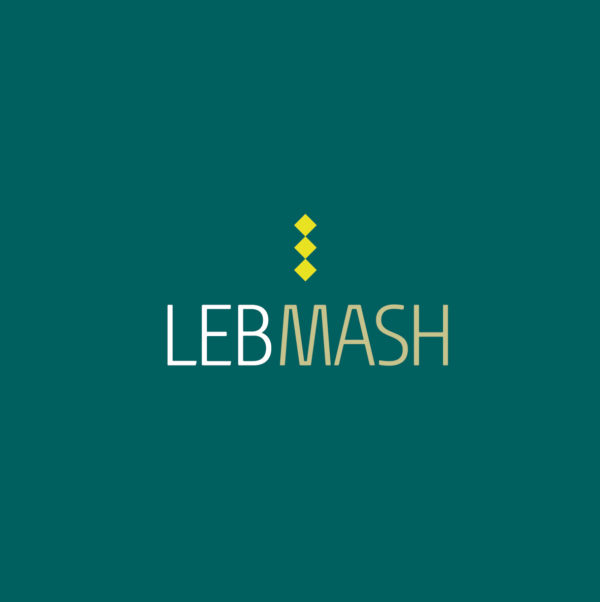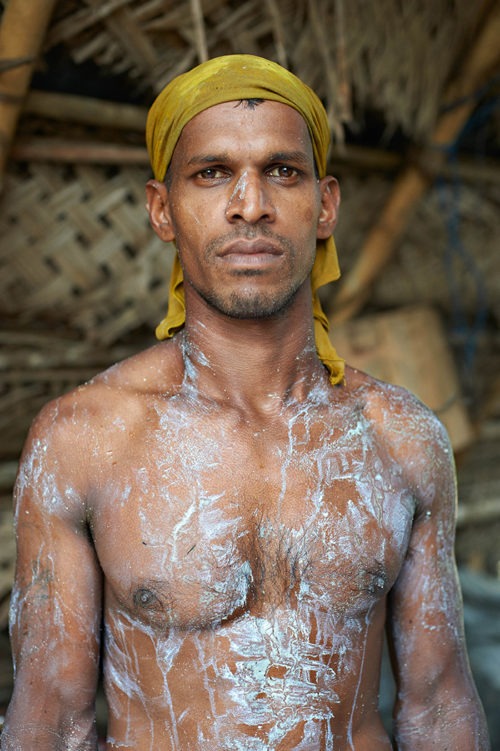Lebanon: the quiet sexual health revolution through LebMASH
By Pierre Scordia
While we are bombarded day and night with hopeless, pessimistic news and violent images from the Arab world, in the Land of the Cedar, altruistic scientists are busy doing their bit towards building a tolerant and diverse society. Sadly, their wonderful work is often overlooked by the media.
LebMASH (Lebanese Medical Association for Sexual Health), a Lebanese association, officially recognized in 2014, founded by Lebanese health care professional living in Lebanon, the United States and Canada, has a double mission: to educate people about sexual health and to train and support medical staff, paying special attention to the LGBT community. The leaders of this charity are mostly Lebanese doctors, psychiatrists and psychologists practicing in Lebanon or North America; they aim, using science, to demystify prejudices that persist to this day among the Levant population; there is still much to do especially to enlighten doctors and nurses: for example, some gynaecologists express surprise at the absence of a husband when a woman comes to see them and if she is single, she may be told: "If you are not married, why do you need a consultation? " Such paternalistic reactions have no place in the 21st century.
Omar Fattal, president of the association, said it is rather urgent to campaign in Lebanon, in order to help people understand that homosexuality is not a disease but simply a natural condition in some people. LebMASH campaigns are very helpful indeed because they prevent young gay men from suffering rejection, conversion therapy (antidepressants, Viagra, 'love dates' with women forced upon them) or self-hatred. Shame and self-hatred can lead to the worst scenarios, such as excessive drinking, taking hard drugs and even suicide.
LebMASH regularly receives calls from young men in distress or health professionals seeking advice for referring a patient to a good therapist. For example, in the north of the country, a gastroenterologist treated a16 year old boy who had attempted to commit suicide because of exam pressure in high school, according to his parents. Once alone with the patient, the gastroenterologist, sceptical about the parents’ version of events, approached the boy to discuss the issue. The first reaction of the teenager was to shake his hand and then to hug him. He confessed the reason he attempted to take his own life was his homosexuality and he feared that his very religious family would reject him and possibly kill him if they learned the truth. The doctor sat with him for more than an hour, explaining that to be gay is neither a sin nor a disease, but a natural state or identity. The young man was later sent to the behavioural department, to which unfortunately the gastroenterologist had no access. Concerned about the kid’s psychological vulnerability, the doctor reported the case to LebMASH.
In Lebanon, contrary to what one might think in the West, it is not a matter of confession. No. Whether you are Muslim, Druze or Christian, it is the environment where you live that makes a difference; the more religious it is, the more you will be inclined to preserve myths and taboos and you will be fed this paradigm of absolute discretion "don’t ask, don’t tell".
Led by prominent health professionals, LebMASH manages to break taboos through the contribution of their scientific answers [1]. The challenge is clearly daunting because enshrined in law there is bill 534 which condemns “sexual intercourse contrary to the order of nature.” But since the wording is not more explicit, it is possible to circumvent this bill such as in 2009 when a judge acquitted two homosexuals by stating, "Homosexuality is an exception to the rules, but it is not contrary to nature, since it is part of nature (...) It is therefore technically not illegal."
Another important factor in demystifying prejudices according to Dr. Omar Fattal, whom I met in New York, is the role of the Lebanese media who have for several years attempted to project a more acceptable, dignified and realistic image of homosexuals by refraining in their output from falling into a caricature trap. Similarly in Tunisia, Al Huffington Post denounces homophobia, sexism and stereotypes whilst in addition campaigning against discriminatory laws. In Lebanon, as in North Africa, an association between sexual orientation and gender leads many people to consider homosexuality as a deviance, as a curable disease, a fact which is totally refuted by scientists.
Dr. Fattal does not believe that religion is a major part of the problem since in Lebanon, in practice, religion remains flexible. The vast majority of Lebanese only follow religious precepts that suit them. For example, a lot of religious people drink alcohol and smoke a lot. LebMASH would rather encourage people to smoke less and to have good sexual health for the welfare of the population. Attempting to change entrenched beliefs is no small challenge, as Omar Fattal reminds me: the phrase "don’t take a shower or you’ll catch cold" would make people laugh today, yet this belief has persisted for many centuries.
Beirut is not yet Ibiza, but still this city remains the most liberal place in the Arab world. It is no coincidence that many subjects of the Gulf monarchies spend frequent weekends in this Mediterranean city with its joyful ambiance. With Tunisia, Lebanon is one of the few Arab countries where tolerance and democracy are progressing. Lebanon holds out despite political instability and the presence of a million Syrian refugees.
In the Land of the Cedar, there are women who will no longer need to attempt a reconstruction of their hymen before their wedding day - the film director Nadine Labaki addresses this topic with great humour and sensitivity in the 2007 film Caramel; soon homosexuals will no longer have to live in shame and rejection; Beiruti police now refuse to conduct raids on gay venues (as was also the case in Canada and other western countries until the early 90s); the Lebanese judiciary nowadays prohibits the humiliation of anal tests. Things are looking up for Lebanon and hopefully this great work will spread throughout the Arab world.
[1] Four other organizations help gays, bisexuals and heterosexuals in Lebanon. Helem is still not recognized by the Lebanese government because it focuses exclusively on the LGBT population; MARSA offers services such as HIV tests and counselling; Mosaic works with LGBT communities and other marginalized groups. There is also Legal Agenda which provides legal support.
Caramel
FΩRMIdea New York, 15th September 2016 | Read in French




